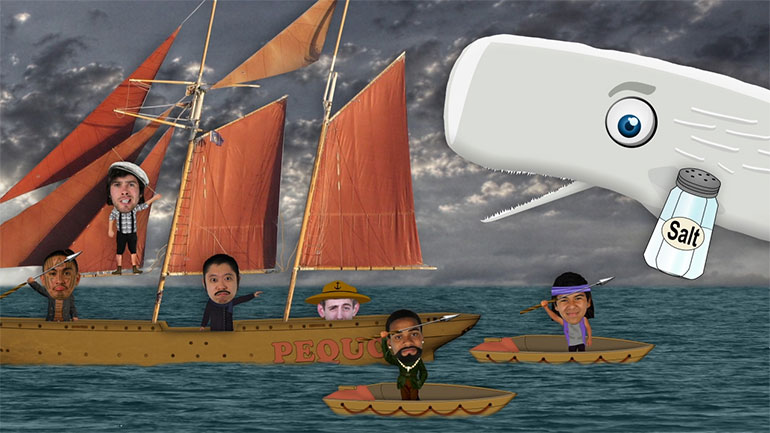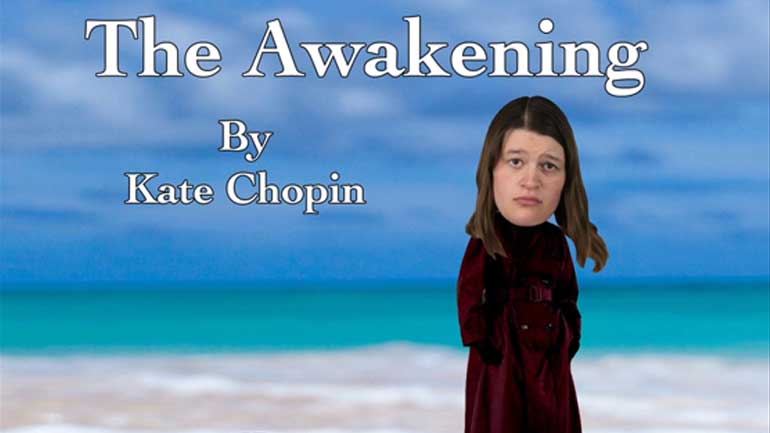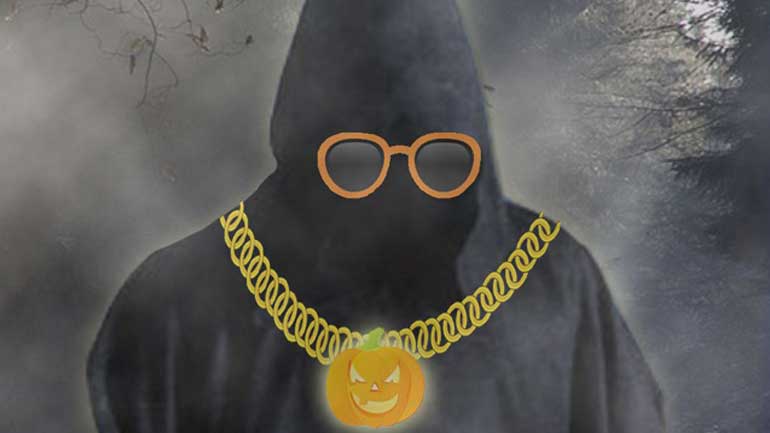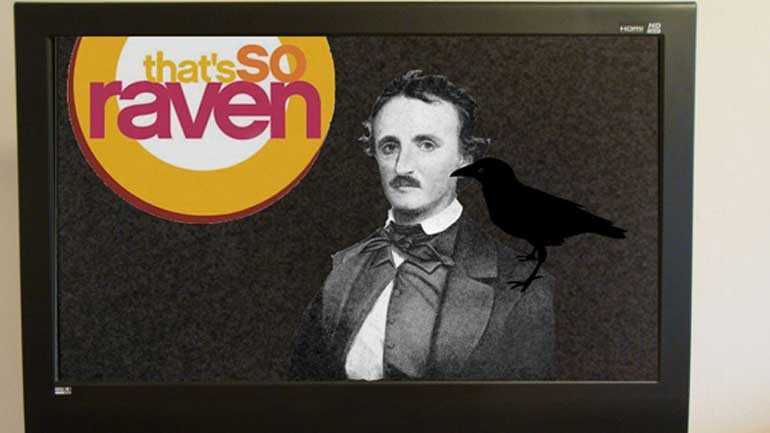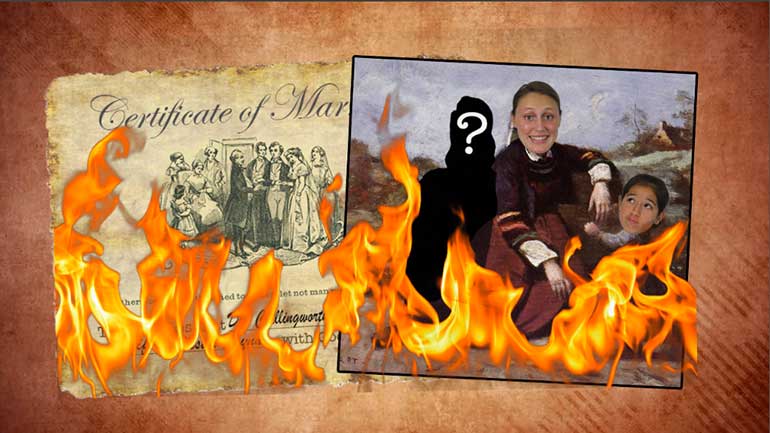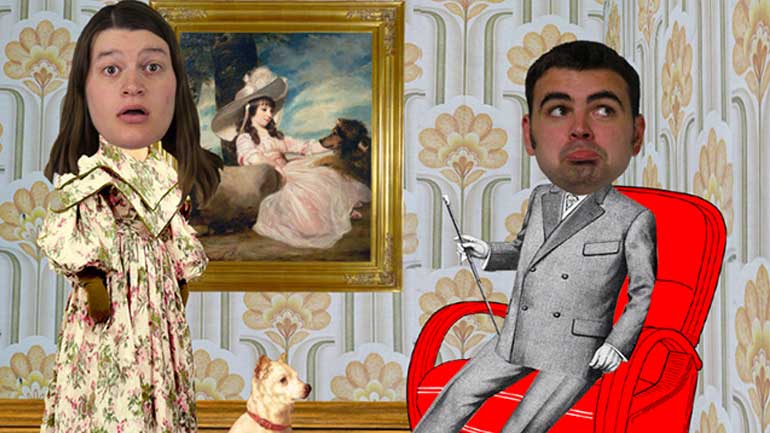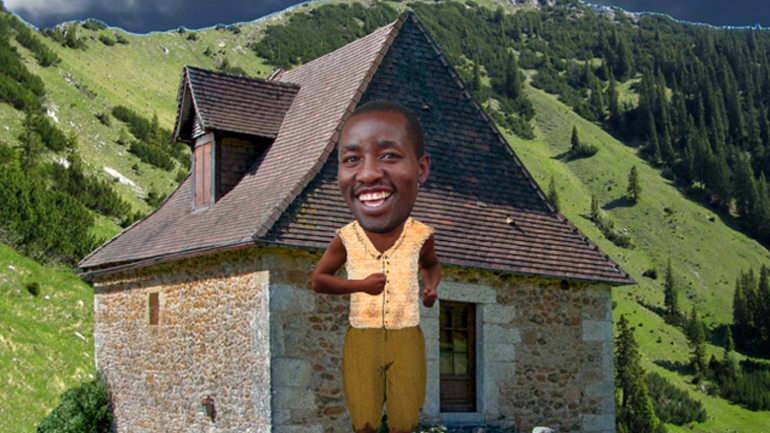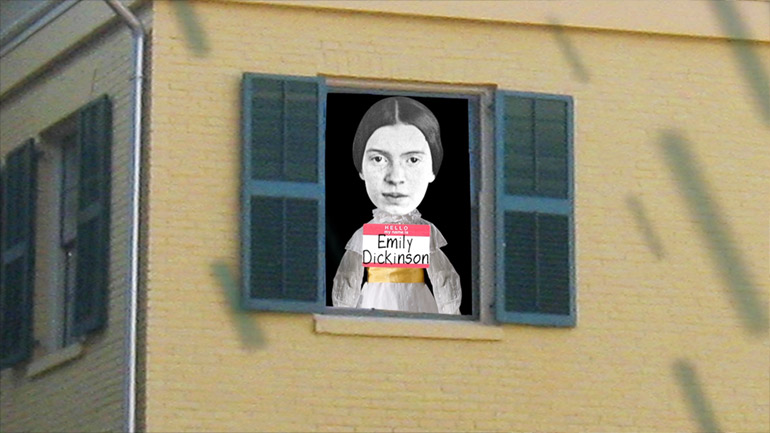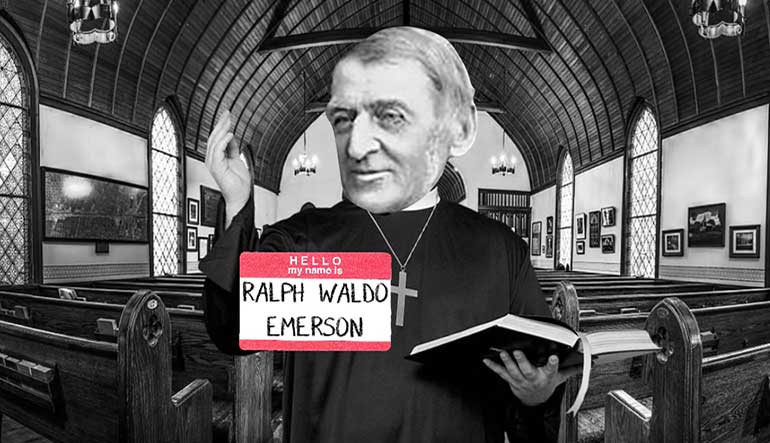ShmoopTube
Where Monty Python meets your 10th grade teacher.
Search Thousands of Shmoop Videos
19th-Century American Literature Videos 35 videos
Should you ever find yourself on a raft, floating down the Mississippi River, you're going to want something to do. Reading Mark Twain's classic, T...
Moby-Dick - una ballena extraña. Nuestro amigo capitán Ahab la había perseguido para años, pero no es el mejor lider en el mundo. Piensas que p...
ELA 11: 4.2a Henry David Thoreau 252 Views
Share It!
Description:
If you ever feel like taking off, living in the woods alone, and refusing to pay for anything, just tell people you're a transcendentalist. They'll respect you more.
Transcript
- 00:03
Ah, the simple life... That's the life for Henry David Thoreau. [Thoreau in the wilderness]
- 00:07
No crazy parties, no loud, crowded places. Yeah, he was a Netflix and chill kind of [crowded party]
- 00:14
guy. Thoreau was born in Concord, Massachusetts in 1817. While he later [Concord, MA on a map]
- 00:19
dismissed college as a place where students couldn't pick up a practical [Thoreau at college]
- 00:22
skill to save their lives, he thoroughly enjoyed himself at Harvard reading as [Thoreau reads at Harvard]
Full Transcript
- 00:27
many books been taking as many classes as he could. Yeah, he was one of those kids. In
- 00:32
1837, Thoreau happened to attend a lecture given by Ralph Waldo Emerson, high [Emerson speaks]
- 00:36
lord of the Transcendentalists. Thoreau loved what Emerson had to say, and he
- 00:40
introduced himself. The two became such good friends that Thoreau eventually [Emerson and Thoreau meet]
- 00:44
became Emerson's housekeeper and the "manny" to his kids... He was basically Mary
- 00:50
Poppins, minus the umbrella and high heels, and flying and all that. But then [Thoreau dressed as Mary Poppins]
- 00:54
in 1842, tragedy struck. Thoreau's older brother and his best friend died. [brother and friend die]
- 00:58
A devastated Thoreau took to wandering the New England woods and setting forest [Thoreau wanders through woods]
- 01:03
fires. Well, to Smokey the Bear, he was public enemy number one. Okay, so he [Smokey the bear appears]
- 01:07
didn't start fires... at least not on purpose, anyway. In 1845, Emerson asked Thoreau to
- 01:12
replant trees on his property at Walden Pond. It was at this point that Thoreau [Thoreau and Emerson talk]
- 01:16
had the idea that would make him famous. See, Thoreau couldn't understand why [Thoreau has idea]
- 01:20
people were so gung-ho about industrialization. He didn't get why his
- 01:24
fellow Americans were so dead set on acquiring stuff. Thoreau wanted to live
- 01:29
as simply as possible, so he decided to build a cabin on the shores of Walden [Thoreau builds cabin]
- 01:32
Pond and well, basically do just that. Now Thoreau's experiment wasn't as
- 01:37
radical as he would later make it sound. While he did grow his own food and
- 01:40
perform odd jobs around town, he was living rent-free on Emerson's property. [Thoreau lives in cabin]
- 01:45
Not to mention the fact that both Emerson and mama Thoreau lived right down the
- 01:49
street and were always looking to feed Thoreau a hot meal. While people frequently
- 01:53
criticized Thoreau for being an unmotivated hippie, which we at Shmoop [Thoreau as a hippie]
- 01:57
actually think is kind of cool, the fact is that he got a lot of writing
- 02:01
done while he lived in his cabin. Well, much of that writing would become the
- 02:04
book Walden, which laid out Thoreau's ideas on nature and conservation. While [Thoreau writes Walden]
- 02:09
Thoreau wasn't necessarily the first environmentalist, he was the first to try
- 02:13
and formulate a coherent philosophy about environmentalism itself. By 1848, [Environmentalist philosophy forms]
- 02:18
Thoreau had moved out of his cabin and embarked on a one-man crusade against [Thoreau protests government]
- 02:22
the U.S. government. Thoreau hated slavery, and he hated the Mexican-American war. There
- 02:27
was a lot of hate in such a peaceful guy. But yeah, he believed the American
- 02:31
government to be unjust, so he refused to support it. He refused to pay his poll [Thoreau criticizes president]
- 02:36
tax, a crime that got him thrown in prison overnight. And remember, poll tax [Thoreau in jail]
- 02:40
was so you could vote, right? Thoreau was perfectly willing to rot in jail for longer, but a
- 02:45
friend bailed him out against his will. "Against his will"... sure there, Henry. In 1849, Thoreau's [friend bails Thoreau out]
- 02:52
discourse on this experience was published as a text entitled Civil
- 02:56
Disobedience. His words would go on to inspire Martin Luther King Jr. and [Civil Disobedience inspires others]
- 03:00
others working for equal rights. Well, in 1862, Thoreau died of a cross between
- 03:04
consumption and a bad cold. While many people thought him a silly and [Thoreau dies]
- 03:09
self-indulgent sort of fellow, the fact is that Thoreau was perfectly happy doing
- 03:13
his own thing. And check out some of those shows on Alaska on Discovery [modern Alaska TV show]
- 03:17
Channel if you want an idea for the modern day version. He also inspired many people to worry less
- 03:22
about buying lots of stuff and spend more time doing things that actually [man in cluttered garage]
- 03:26
matter. Like, you know, accidentally torching Walden Woods. [woods on fire]
Related Videos
How did Scrooge go from being naughty to nice so quickly, and why? (Hint: contrary to popular belief, it has nothing to do with the ghost of Santa...
What would YOU do if the heart of the person you buried under the floorboards started making noise? Only one way to find out... (Note: Shmoop does...
Meet the Lady of Shalott. Not to be confused with the Lady of Shallot, who is frequently in a pickle.
Harriet Jacobs' narrative gave Americans an unprecedented account of what it meant to be a fugitive of slavery. Check out this video for more about...
Oh, William Lloyd Garrison and his radical ideas... like... you know... freedom and equality. Weird, right?


